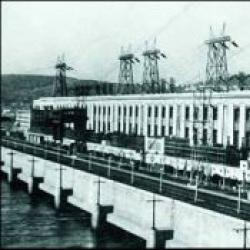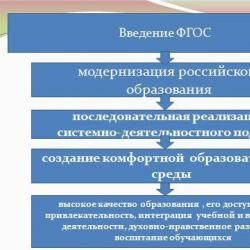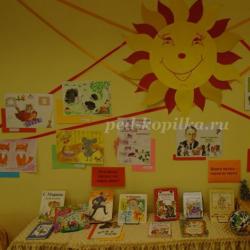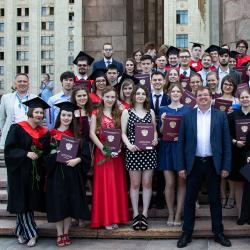Bar for gay people. Non-traditional clubs for gays and lesbians. "Our cafe" Sasha talks about her coming out
LGBTQIA is an acronym for a community of people with a different sexual orientation and gender identity - Lesbian, Gay, Bisexual, Transgender, Queer, Intersex, Asexual.
What is the mission of the Resource?
Our mission is to promote the growth of self-acceptance and self-respect in the Rainbow Community, to promote the development of mutual support and active citizenship among representatives of this community. We strive to humanize relations between society and the Rainbow Community, to the broad integration of all members of the community into society based on the values of equality and tolerance.
Our goals are to provide socio-psychological assistance to representatives of the Rainbow community, same-sex families, as well as parents and relatives of homosexuals, support social and cultural initiatives aimed at community development, work with specialists in the helping professions to inform, educate and develop tolerance towards gays. community.
Tell us the story of the creation of the association of activists? What services do you provide?
The beginning of the history of the organization is a psychological support group for LGBT people, which has been regularly held in Moscow in this format since October 2011 by Yulia Malygina.
In the fall of 2012, the initiative group “Resource” was formed. New psychological services were created - free individual psychological consultations for homosexuals, psychological trainings, legal seminars were held, and a photo-therapeutic art project “Manifestation of Identity” was organized and carried out.
The exhibition - “Manifestation of Identity”, was opened in Moscow as part of the “Week against Homophobia” in April 2013, took part in the Eastern European Christian LGBT Forum in Kiev and was shown in Helsinki in the fall of 2013, with the support of the Finnish organizations Seta and Heseta. Works from the exhibition were also shown in the Netherlands during gay pride in the summer of 2014.
The initiative group “Resource” actively collaborated with the LGBT Network organization to create a branch of the LGBT Network Hotline in Moscow and with the Coming Out organization to regularly hold a “Parents Meeting” - an event for parents of homosexuals in Moscow.
In the fall of 2013, the Center for Social, Psychological and Cultural Initiatives “Resource LGBTIK Moscow” was created. The activities of support groups have been expanded, with separate groups for women, men, same-sex parents and movement activists. An intervisory group for psychologists working with the gay community has appeared and is held regularly. We have born new cultural projects - a language speaking club, and within the framework of this club we began cooperation with the Goethe Center in Moscow and regular film screenings in German, a Literary Club in collaboration with the Pink Pong Club. In the fall of 2014, we began another photo-therapeutic art project, “Manifesting Intimacy,” with Rainbow Families.
In November 2014, the Resource organized and held the First Family LGBTQIA Conference in Moscow at the Sakharov Center. The purpose of the conference is to attract specialists of helping professions and the general public to the problems of same-sex families and families with homosexual children, to the problems of discrimination against them by the state and society. The conference was attended by more than 100 people, including representatives of Rainbow families and organizations from Germany and Finland.
The LGBTQIA Resource Moscow Center actively cooperates with the Rainbow Association and supports the initiatives of the LGBT Network, Coming Out and the Side-by-Side festival in Moscow. Also in 2014, the Resource was invited to the ILGA-Europe conference and the international LGBT conference in Washington.
Services we provide at the center
Psychological consultations
Support groups
Psychological seminars and trainings
LGBTiQ Parents Club
LGBTIQ group “We are parents”
Intervisor group for psychologists
Lawyer consulting
Language club
You can always find out more about our services on our page http://vk.com/resurslgbtmsk
As I understand, the work you do is most often volunteer work, how do you manage to keep people on the team and what do you do to attract new activists?
In our Resource, we have established constant regular, lively and varied activities, for which the entire Resource team is responsible, each of its participants is responsible for their own direction. The guys feel this responsibility and, most importantly, the impact of their work. Return is feedback from people who come to us, their gratitude, reviews and responses. Understanding the need for our work and its tangible benefits for specific people inspires us and supports us in our volunteer work.
We are open to new interesting projects, and every volunteer who comes to us has the opportunity to realize himself, his ideas and dreams the way he sees them. As a team, we support all initiatives that align with our goals and values. Our life is always in full swing, and this attracts new people.
Who are your clients and what problems do they come to you with?
Our clients are people from the LGBTQIA community, Rainbow families, our parents, friends and loved ones, professionals (psychologists, teachers, lawyers, doctors...), etc.
Problems - coming out (in front of loved ones, friends, colleagues, children), discrimination in society and pressure from the state and the media; the adoption of one or another new discriminatory law is especially hotly discussed in groups. The community is concerned about building personal relationships and the difficulties in them, the problems of raising children in a same-sex family, internal homophobia, discrimination within the community itself, problems of self-acceptance and acceptance in the social environment.
What are the challenges in your work?
Existing semi-underground, we are forced to leave things unsaid or specifically stipulate conditions when looking for a place for our events. There is an ever-increasing danger to our activities from the state and extremist groups, the law “on propaganda”, which closes the possibility of official interaction with any organizations, both Russian and foreign, public and private, the law “on foreign agents”, which limits our financial freedom. Also negatively impacted by the exclusively volunteer nature of the work, difficulties in finding funding and lack of agreement among activists of the community itself.
What kind of help do you need in bringing your ideas to life?
We need information support, our own venue for events (our own premises), and participation in international projects and conferences. We are interested in inviting both Russian and foreign specialists to work with us for training and exchange of experience; we need financial support for specific projects. It is important for us that the LGBTQIA communities themselves are included in the work of the center.
Interview conducted by Evgeniy Pisemsky
Themed parties in gay bars are easy to find, and Grindr shows profiles of men right on the territory of the Kremlin. Will a bright future await Moscow gays two years after the adoption of the “propaganda law”?
To bookmarks
In 2013, when the State Duma was discussing a new law on “gay propaganda,” Krasovsky was a well-known figure on Russian television while working for the KontrTV news channel, which he co-founded. But, suddenly, at the end of a lively discussion about the upcoming bill on “homosexual propaganda,” he said live on air: “I’m gay. And I’m the same person as Putin, Medvedev or Duma deputies.” Less than a week later, Krasovsky no longer worked for KontrTV, the clip with his confession was removed from the archives, and his face was removed from the channel’s website.
Still, ask Anton and his friends what it's like to be gay in Moscow and they'll shrug. “Moscow attracts gays from all over Russia, so there are more gays here than anywhere else in the country. And they all want only what every person wants: to love someone.”
Moscow, in fact, is much happier than it might seem at first glance. There may not be many exclusively gay-themed nightclubs here (with the notable exception of the five-story Central Station), but many bars and restaurants host theme nights, from Cafe Mart to the famous Sunday discos at Propaganda. When it comes to club nights, the main problem for gays in Moscow is not, however, the prejudice of others, but what in Russia is called “face control.” The Daily Beast describes the process as "meeting the right people—or looking the part." Russia also publishes a gay magazine, KVIR (in the manner of the English word “qweer,” broadly meaning involvement in LGBT), rich in thematic illustrations and juicy pictures, more reminiscent of Out Magazine than Advocate. But with all the hype around anti-gay bans in Russia over the past few years, it's amazing how tolerant Moscow can be.
“As if I’m too old to know about this!” Tim, a 22-year-old male model, responds with feigned anger when asked whether life in Moscow has become more difficult over the past five years. “But no, everything just gets better. Of course, I don't hide my sexuality because I work in the modeling business - most of the people at my job are gay - but I have to hide it from some other people. But there are more and more gay parties in Moscow, so everything is going for the better.”
Sanctions Bar, an establishment with a semi-ironic anti-Western theme, decorated with oil drums, toilet paper with images of dollars and a menu with a crossed-out caricature of Barack Obama, has only recently, without much publicity, begun to attract LGBT customers. Tim wears a blue ribbon on his wrist. “White means single, red means in a relationship, blue means flirting. They made us choose something. I did not want".
In Russia, the media may not cover LGBT lives, but Tim watches E! and “Keeping up with the Kardashians,” considering New York to be his spiritual refuge. “And yet, I dream that one day I will be able to walk hand in hand with my partner along the streets of Moscow. But I don’t think that this will ever be possible "
Andrey, 27 years old, engineer, one of those guys who came to the capital from the villages. A native of Grozny, he grew up in a village near Moscow and moved to the capital at 21. He was attracted to Moscow by Eurovision, which was held in the city in 2009. “Of course, I was immediately amazed by what the capital has to offer,” he said over a cup of coffee on a hot June afternoon in the backyard of Cafe Mart, just behind the Moscow Museum of Modern Art. “In Grozny, I had to hide from both my parents and friends. But of course, I still needed to meet someone for sex.”
Andrey used apps, but upon arriving in Moscow he realized he no longer needed to be so secretive - although he still doesn't talk about himself at work. “I feel uncomfortable when men talk about women. A colleague once asked me which girl I would like to go on a date with, to which I replied that I don’t date at work.”
Mobile apps have made life for gays in Moscow much easier. Grindr has never been more popular here - a hacked location file allowed us to discover a whole list of potential candidates - right in the Kremlin. Another app, Hornet, is also gaining popularity due to its ability to upload both public and private photos, available only upon request. News of anti-LGBTQ activists creating “honeypot” accounts to beat and humiliate (sometimes even posting videos online) made Andrei and his friends more cautious. “I don’t invite men I find on the app to my home. We meet, talk to each other, go for walks.” He does not show his sexual orientation in public. “With the advent of apps, you often find friends with people whose sexuality you’ve never thought about. And only then you can tell them about yourself. In reality, meeting men is quite dangerous if you don’t know for sure. Not even all gays admit it.”
There are fewer events aimed at lesbians in Moscow, but this does not mean that they do not exist at all. Among the most popular parties exclusive to women, the most notable is L-WORD, named after the American TV series. It is conducted by 29-year-old Karina Krasavina.
L-WORD takes place every two weeks at a club in the center of the capital and celebrated its six-year anniversary last weekend. Krasavina said the authorities did not interfere with their activities. Her business partner, 24-year-old Nastya Laut, only laughed at questions about safety.
"There are so many lesbians in Moscow - we are everywhere now," she said. “It's becoming normal. Of course, there are those who do not understand and are negative, but the majority are supportive. My family is okay with it, as are my friends, so I don't feel in any danger. We're just having a good time."
But journalist and LGBT activist Elena Kostyuchenko does not believe that all lesbians can lead such an open lifestyle. She says that even in places where gays feel at ease, lesbians try not to advertise their sexual orientation.
“Many LGBT clubs look like ordinary restaurants in daylight - people come there for a business lunch or something else. And only under cover of night do they turn into clubs for gays and lesbians. So even such establishments live a double life,” she says.
The presence of lesbians in Moscow has decreased somewhat in recent years, as more and more active LGBT people leave the country due to an unfavorable political climate. “Many establishments have closed, I don’t even know where people go now to have fun,” Kostyuchenko admitted. But she still emphasized that life is much easier for gays and lesbians in Moscow or St. Petersburg than anywhere else in Russia. “Yes, there are some difficulties here and we have to be careful, but this is not commensurate with what is happening in other regions of the country.”
Indeed, Moscow's LGBT community seems more stoic than angry. They even “captured” an insult that is usually used against them: if something strange or out of the ordinary happens in Europe, then they call it “Geyropa”. But what really worries Moscow gays and lesbians is not fear for their own safety or the lack of opportunity to meet others like themselves. They are concerned about the lack of legal status of their relationship. They cannot raise children, transfer property or own property together without interference from the state or relatives.
Anton Krasovsky wants children, his partner Nikita Ikonnikov, who is younger than him, does not. Is he worried that Muscovites won't approve of two men raising a child?
"Yes, sure. But there are ways. It's possible. It's just dangerous."
He understands why more and more men don't want publicity in Moscow, and while he hopes other public figures will follow his example, he understands the reasons why they don't. “That immediately puts you at the bottom of the food chain. You become a guest worker in your own country.” In general, Krasovsky does not feel entirely comfortable in the role of a gay activist. “It’s not like in America: yes, yes, I’m so proud. In Moscow, by and large, we are just trying to somehow survive.” In his characteristically self-deprecating style, he displays his Grindr profile. The appendix contains a number of messages from men, most of whom ask: “Are you really Anton Krasovsky?”, but among them there was one that stood out: “It’s great to see you here.”
He may be the most famous openly gay man in Moscow, but he also seems ashamed of his decision to go public live, continuing to deflect questions directed at his friends. And yet, almost embarrassed, he admits that he knows why he did it. “It’s scary (to reveal yourself). Even in England it's scary sometimes. But it’s better to go into battle and die in it than to be afraid all your life, holed up in a bomb shelter.”
Love and be loved!
WriteNot all people prefer to while away their free time on social networks in the evenings; many crave active fun, musical drive, new acquaintances and dancing whenever they want. These desires are easily fulfilled in nightclubs, where a noisy celebration for no reason often continues until the morning.
From the article you will learn why the most unusual gay nightlife establishments exist and where they are located.
Cinema and reality
In the famous television series Queer as Folk, you can see an entire neighborhood with recreational facilities for gay people. Is there something similar in the Russian capital? There is no need to talk about the whole area, but they exist in quite a wide variety and open their doors to their visitors in the evenings.
However, in TV series and films, such establishments are rarely depicted reliably, while real gay clubs are simply fun and noisy places where people come to dance to energetic music, watch a show on stage, meet fellow lovers of unbridled fun, and have a drink. , relax and get rid of everyday problems from your head. In general, they are practically no different from other entertainment venues in the capital. The only difference is in the visitors, but even here there may be surprises.
Not just gays
In clubs intended for gay men, you can often find groups of heterosexual girls having fun. But they go to such places not at all with the goal of meeting someone, but quite the opposite - to take a break from the annoying attention of “traditional” guys, just to have fun and dance to their heart’s content. Often young ladies gather there for bachelorette parties.
In addition, the very atmosphere of a gay club, free, relaxed and devoid of pathos, attracts people who are alien to conventions, regardless of their preferences. After all, here you can look whatever you want and not think too much about what impression you make.

Representatives of non-standard orientation feel like fish in water here: no judgment or sidelong glances, which helps to fully relax and unwind, enjoying noisy fun, relieving stress and forgetting about all the problems. For the same reasons, heterosexuals often go to such clubs. After all, the show program that can be seen on stage in thematic establishments is truly unique.
Unbridled celebration
The entertainment programs that Moscow gay clubs offer their visitors are distinguished by their scope and variety. To entertain the public, male striptease shows and incendiary competitions are held on stage. Almost every night you can see bright and bold drag shows, as well as sparkling musical parodies of pop stars. From time to time, visitors can dance to performances by real singers, including Sergey Lazarev, Boris Moiseev, Eva Polna, Zhanna Aguzarova, Lolita, the Mirage group and many others. In general, musically, gay clubs in Moscow often offer time-tested disco hits by foreign and domestic performers. However, elite establishments cannot do without fashionable club tracks performed by guest DJs.
Legendary places
The first metropolitan establishment for lovers of club life with non-traditional orientations was Premiere, which opened in 1994. A year later, the gay club “Central Station” appeared. Moscow gradually became the center of party life of all directions.

The thematic establishment called “Chance” also belongs to the category of legendary, which repeatedly moved to other addresses and opened later as “Soul and Body”, and then “Nebesa”. The club is currently closed.
Another of the oldest gay establishments was the Three Monkeys, which moved from place to place many times and, apparently, closed in 2014. A similar fate befell many gay places in the capital; only a few of the previous dozens of clubs and bars that operated successfully in the 1990s and early 2000s.
However, not everything is so bad, and most often the closure of an establishment means that there is no longer a need for it. In the era of widespread Internet penetration, residents of megacities no longer use clubs to find a date. Most often, people meet on websites, and then go to hang out in their favorite places, not necessarily with a narrow focus. In other words, orientation clubs are being replaced over time by clubs based on interests: music, cuisine, style, etc.
Top Five
Over time, out of several dozen “non-traditional” clubs and bars, no more than ten remained in the capital. Reviews allow us to highlight the top five places. This list includes not only individual large clubs, but also small gay bars and regular theme parties. This is due to the fact that there are almost no truly large establishments with such a narrow focus left.

So, first place in the unofficial ranking of “The Best Gay Clubs in Moscow” goes to a small establishment called “Mono Bar”, located on Pokrovsky Boulevard. At the moment, this is the place where visitors leave the most positive reviews on social networks.
In second place is the famous Central Station club, which changed its interior and location in 2014. Now it is located on Leninskaya Sloboda Street.
Third place goes to the cheerful gay party China Town, which invariably takes place on Sundays at the Propaganda club.
The fourth place is occupied by the cozy “Our Cafe” on Tverskaya, open from evening until morning.
Now, in more detail about all the establishments chosen by visitors as the best themed bars and gay clubs in Moscow. Photography and video shooting during parties is usually prohibited.
Mono Bar
The atmosphere here is relaxed and carefree. The interior is pleasing to the eye, the music is cheerful, the staff is friendly. You can eat and drink inexpensively. The audience is varied, but adequate. Many visitors who come here for the first time do not even immediately realize that they are in a gay bar. One of the shortcomings is that girls are not allowed in particularly willingly, only if accompanied by a young man.
"Central Station"
The once iconic metropolitan place is now beginning to lose ground and receives high ratings mainly due to its regulars. In general, the club is nothing outstanding, as noted by those who visit there.

The beautiful interior is spoiled by the unfriendliness of the staff and not always high-quality alcohol. Despite the great popularity of the club, not all evenings you can see many visitors here.
China Town in "Propaganda"
A fun and fashionable gay-style party has been attracting partygoers from all over Moscow, as well as guests of the capital, including foreign ones, for more than ten years in a row. Several DJs are responsible for the mood of the public, including the famous Tony Key. All this creates a great mood for club lovers. The downside is that it is not easy for girls without a male escort to get to this party.
"Our Cafe"
There are two halls here: one with a bar counter, the other with tables and a stage on which nightly travesty shows are held, which are one of the highlights of the establishment. In general, the entertainment program for visitors is quite well thought out, various parties are organized, and promotions on food and drinks are constantly running.
"12 volts"
This cafe-club pleasantly surprises its visitors with affordable prices and a cozy, friendly atmosphere. It gets crowded on weekends, but overall the atmosphere is calm. People come here to relax and spend time in comfort.
Thematic and gay clubs in Moscow: addresses
This list includes the most visited and popular establishments.
- Mono Bar - Pokrovsky Blvd., 6/20.
- "Propaganda", China Town party every Sunday - Bolshoi Zlatoustinsky Lane, 7.
- Central Station - st. Leninskaya Sloboda, 19, bldg. 2.
- Ice Club - Stoleshnikov lane, 7, building 2.
- "Bar 911" - Glinishchevsky lane, building 11.
- - st. Tverskaya, 12, building 2.
- "Our Cafe" - Tverskaya st., 25/9.

There are not many gay establishments left in the Russian capital at the moment, but the existing ones are in demand among completely different categories of visitors. After all, the desire to have a good time, dance, make friends and have fun in every possible way is common to many people, and often regardless of their income, social status, nationality, age, gender, sexual orientation and any other factors.
Ilyinsky Square - a small (~2.25 hectares) historical park in the center of Moscow, laid out back in 1882; located inside a rectangle formed by the roadway of Ilyinskie Vorota Square, Staraya and Slavyanskaya Squares and Lubyansky Proezd.
The square is a green space with winding alleys and benches; Despite its apparent unsightliness, its territory is a monument of landscape gardening art. At opposite ends of the square there are two monuments: in the northern part, near Ilyinsky Gate Square - , in the south near Slavyanskaya Square - .
Before the construction of the square, originally called Lubyansky, the area had a glorious history: under Ivan the Terrible, a streltsy settlement was located here, under Peter I, bolwerki (fortifications) were erected, and after the Patriotic War of 1812, when the dilapidated Peter’s bolwerki were dismantled, a vacant lot formed on the site of the future square , on the northern side of which there were benches, on the southern side they sold fish, and the remaining part in the middle was partially occupied by various warehouses. In the early 1880s it was realized that the space needed to be improved, and in 1882 the area was cleared and planted with trees.
In principle, since 1882 the square has not changed that much: in 1887, a monument to the heroes of Plevna was erected near the Ilyinsky Gate, in 1992 a symmetrical monument to Cyril and Methodius appeared, but otherwise it remained almost the same - rather, its surroundings changed.
In the summer months, the square becomes popular as a place for secluded relaxation: despite its location inside a rectangle of roads in the noisy center, it is surprisingly quiet, and nothing interferes with the rest of Muscovites.
Gathering place for gays and Pokemon Go players
In the last 10-15 years, Ilyinsky Square has become one of the traditional gathering and meeting places for homosexuals in the center of Moscow. Along with Teatralnaya Square, gays gather in Ilyinsky Square to communicate and meet like-minded people; Probably, the secluded atmosphere in its alleys contributes to the popularity of the square among gay people.
In the summer of 2016, Ilyinsky Square acquired another ambiguous meaning: fans of the popular mobile game began to gather there Pokemon Go.“Pokémon catchers” fill the lawns near the monument to Cyril and Methodius and, buried in smartphone screens, wait for the appearance of Pokemon. The game is based on augmented reality technology: players are supposed to use their smartphones to catch Pokemon that appear around them on the map, as if they were really there. Popularity of Ilyinsky Square among players Pokemon Go due to the fact that there are several PokeStops nearby - special places where baits for Pokemon can be installed - due to which Pokemon appear in the park more often than in other places.
However, neither gays nor Pokemon fans, as a rule, do anything to interfere with ordinary townspeople.
Ilyinsky Square located between Ilinskie Vorota Square and Slavyanskaya Square. You can get to it on foot from the metro station "China town" Tagansko-Krasnopresnenskaya and Kaluzhsko-Rizhskaya lines: exits from the lobbies are located right next to the square.






